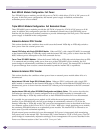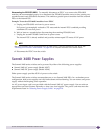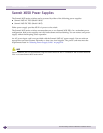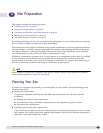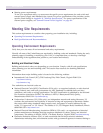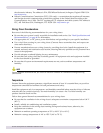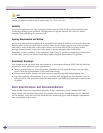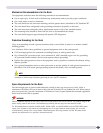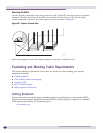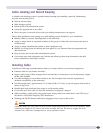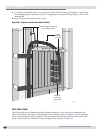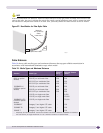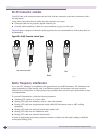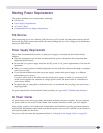
Site Preparation
Summit Family Switches Hardware Installation Guide
86
NOTE
As with all electrical equipment, Extreme Networks product lifetimes degrade with increased temperature. If
possible, temperatures should be kept at approximately 78° F (25° C) or lower.
Humidity
To maximize equipment life, keep operating humidity between 50% and 70% relative humidity (non-
condensing) during typical operation. The equipment can operate between 10% and 95% relative
humidity (non-condensing) for short intervals.
Spacing Requirements and Airflow
Be sure that cables and other equipment do not block the air intake or outflow on an Extreme Networks
Summit family switch. It is best to have at least 3 inches (8 cm) of clear space in front of the air intake
and outflow vents on the sides of the switch; airflow moves from side to side. For proper airflow
through a Summit family switch, leave clear space on the left and right sides of the switch.
Depending on other conditions in the equipment room, it may be possible to install the switches closer
to each other; consult your Extreme Networks Customer Support representative for guidance.
Electrostatic Discharge
Your system must be protected from static electricity or electrostatic discharge (ESD). Take the following
measures to ensure optimum system performance:
● Remove materials that can cause electrostatic generation (such as synthetic resins) from the wiring
closet. Check the appropriateness of floor mats and flooring.
● Connect metal chassis, conduit, and other metals to ground using dedicated grounding lines.
● Use electrostatically safe equipment. If you are working with pluggable interface modules, wear an
ESD-preventive wrist strap and connect the metal end to a grounded equipment rack or other source
of ground.
Rack Specifications and Recommendations
Racks should conform to conventional standards. In the United States, use EIA Standard RS-310C:
Racks, Panels, and Associated Equipment. In countries other than the United States, use IEC Standard
297. In addition, verify that your rack meets the basic mechanical, space, and earthquake requirements
that are described in this section.



